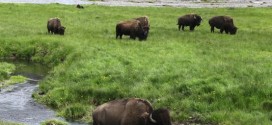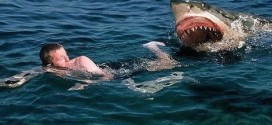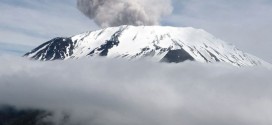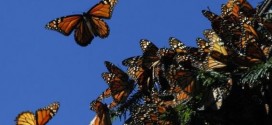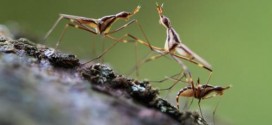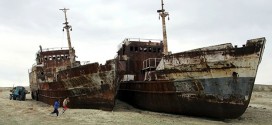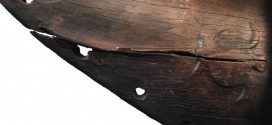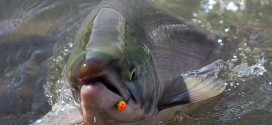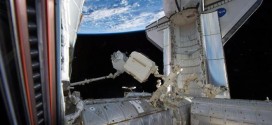Montana wants 145 bison that originated in Yellowstone National Park given away to six organisations in five states, including New York’s Bronx Zoo, to further the conservation of America’s last pure-bred wild buffalo.
Read More »Science
Western Australia shark attack victim lost both arms
A 23-year-old man has lost one arm and one hand after he was attacked by a shark while surfing in Western Australia.
Read More »International Astronautical Congress (IAC) Begins in Toronto
Toronto will become the center of the universe this week as the city hosts the 65th International Astronautical Congress (IAC) 2014. Taking place from September 29th to October 3rd, the annual international convention will bring space to Canada.
Read More »Mount Saint Helens dome-building eruption recalled
Ten years ago this week, Mount St. Helens started shooting steam and ash in the air. The eruption wasn’t as big as the 1980 blast, but over three years it built a second lava dome in the crater that rose to more than 1,000 feet.
Read More »Gene key to monarch butterfly’s miraculous migration, study shows
New research, published in Nature, theorizes that just one single gene is responsible for some Monarch butterfly populations becoming migratory, while others choose to stay put. It is also thought that the species did not originate in Central or South America, but in North America, specifically the American Southwest or Northern Mexico areas, around 2 million years ago.
Read More »Genetic shocker: Mother’s ex can affect future offspring, Study
Researchers have discovered a new form of non-genetic inheritance, showing for the first time that offspring can resemble a mother’s previous sexual partner – in flies at least.
Read More »Aral Sea basin completely dried out (Video)
Aral Sea – Satellite images, released last week by NASA, reveal how a large section of the Aral Sea, a lake lying between Kazakhstan in the north and Karakalpakstan, an autonomous region of Uzbekistan, in the south, has dried out.
Read More »600-year-old canoe found in new zealand (Photo)
A 600-year-old canoe, pulled from a sand dune on New Zealand’s South Island, may help scientists further understand the seafaring technologies of the Polynesian peoples. The canoe, which was discovered two years ago near the Anaweka estuary, is a rare find, as due to their wooden construction many such craft rapidly decay, and are lost to the ages.
Read More »Algae bloom kills 280000 fish at B.C. salmon farm, Report
Marine Harvest Canada (MHC) is estimating a loss of up to 280,000 fish of an average weight of 4.1 kilograms due to a harmful plankton bloom at Marsh Bay near Port Hardy, BC. The harmful algae, Heterosigma akashiwo, are common plankton known to kill salmon.
Read More »Lasers show how Sea Monkeys mix oceans, Study
With the help of lasers, researchers have shown that the movement of tiny “sea monkeys” can actually affect water currents on an oceanwide scale. A study conducted by researchers Monica Wilhelmus and John Dabiri at the California Institute of Technology have shown that the migration patterns of Artemia salina—more popularly known as brine shrimp or “sea monkeys”—may have an effect …
Read More »No Canadian visas for Russian, Chinese space reps : Report
A delegation of the Federal Space Agency (Roscosmos) and a number of specialized Russian agencies failed to attend the 65th International Astronautical Congress in Toronto as many of their members had been denied Canadian visas, a source in the Russian space industry told Interfax-AVN on Tuesday.
Read More » Canada Journal – News of the World Articles and videos to bring you the biggest Canadian news stories from across the country every day
Canada Journal – News of the World Articles and videos to bring you the biggest Canadian news stories from across the country every day
